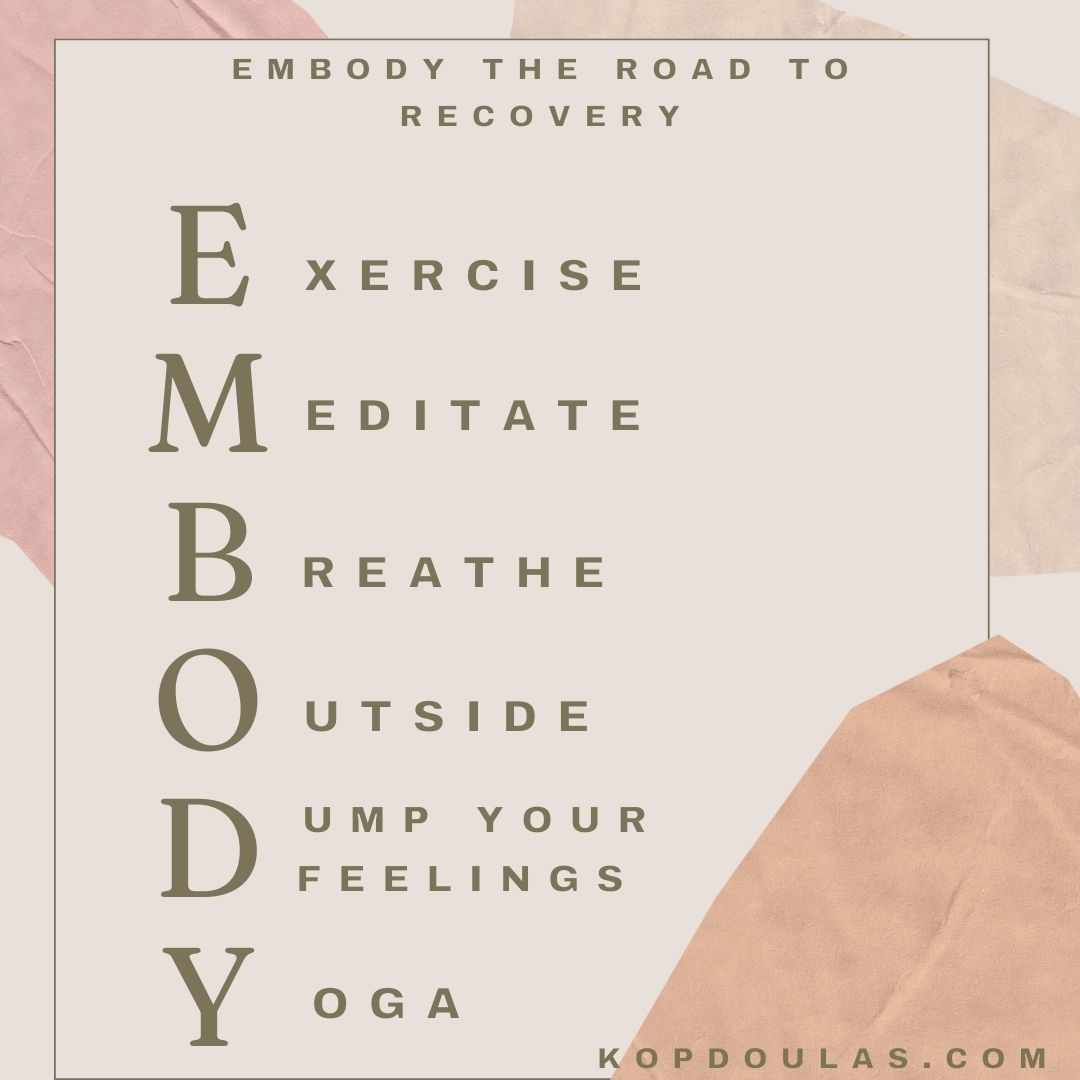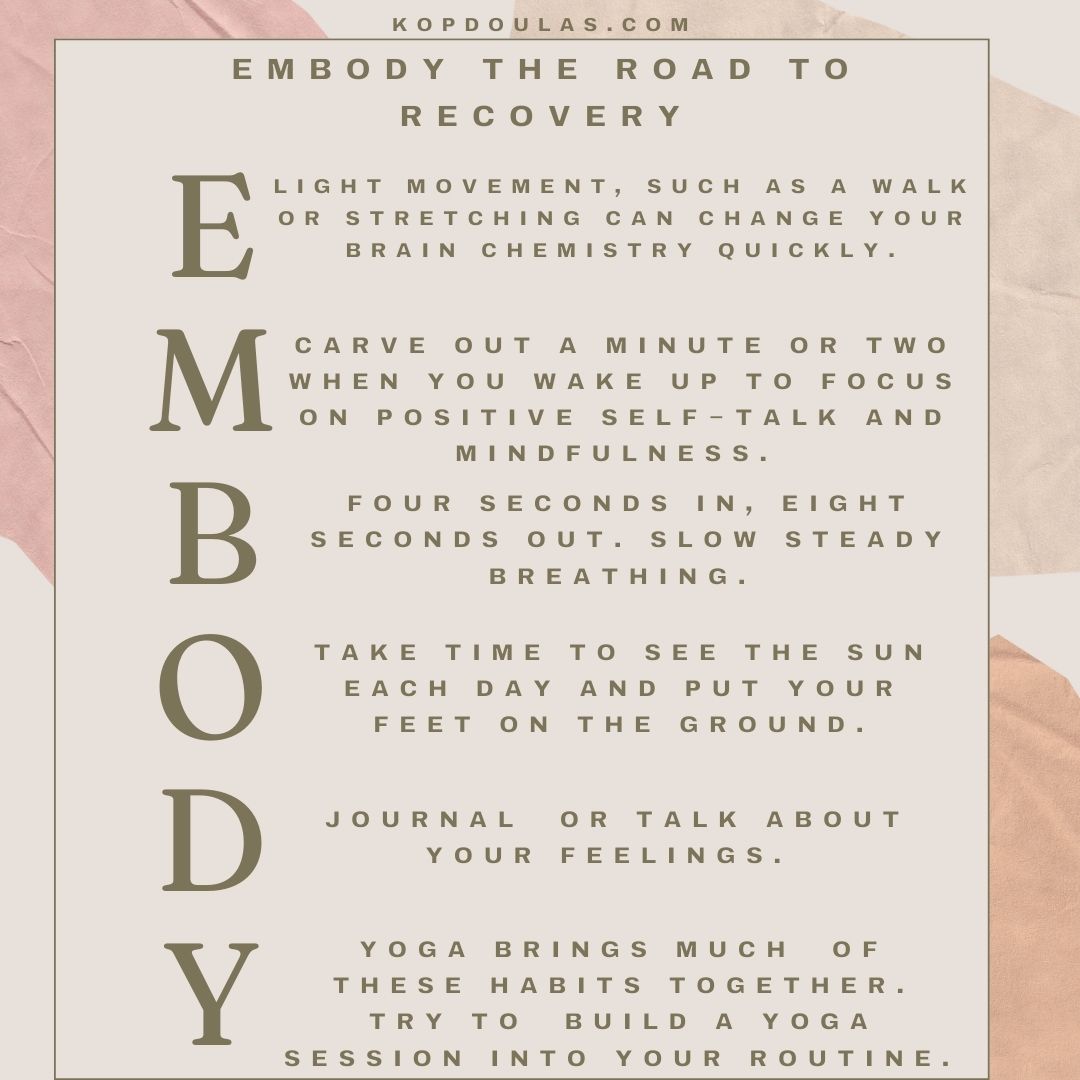Postpartum Depression is more common than we think
Postpartum Depression and other postpartum mental health challenges, also known as PMADS, affect 1 in 5 women and birthing parents in this country and 1 in 10 partners. These statistics are staggering and can leave some expectant parents riddled with worry. Knowing the facts and having a plan can help reduce the risk of developing a Perinatal Mood and Anxiety Disorder and can help you act swiftly if you do develop one.
Know the facts about Postpartum Depression, Anxiety and other Mood Disorders
Nutrition
Many expectant parents take their prenatal vitamins religiously, but are you taking vitamins which your body can absorb? Do some research on your brand to make sure your vitamins are bioavailable and make sure they have what your unique body requires. Request a script for bloodwork to check your vitamin levels so you can appropriately supplement your deficiencies. Reduced levels of Vitamin D, B12 and Omega 3 Fatty acids, may increase your risk of developing depression or anxiety in your postpartum period. Addressing these deficiencies safely in pregnancy and maintaining appropriate levels postnatally may decrease the risk of PMADS.
Try to remember to “eat the rainbow” in healthy fruits and vegetables, healthy fats, protein and whole grains. Limit processed, sugary and high salt foods. Don’t forget to hydrate.
Sleep
Sleep is another factor which can play a major role in the risk of PMADS. Those who sleep the least are at the greatest risk of developing postpartum depression or anxiety. What an unfortunate thing to learn given that no one with a newborn sleeps right? Actually, that’s not entirely true. Families who work with a postpartum doula get far more sleep than those who don’t. And that old adage- sleep when the baby sleeps??? Yeah, that’s a real thing. Limit unnecessary visitors who come only to meet the baby. Accept supportive visitors who will encourage you to take a break from dishes and laundry and shuffle you off for a midday nap.
Support
Finding and attending a postpartum support group has been shown to reduce the risk of developing PMADS. Find a local in-person or virtual group which will help you connect with other parents going through the same phase of life. Hearing stories that help you know you are not alone can do wonders for your mental health.
EMBODY Success!
Whether in the mode of preparing, or in the thick of your postpartum recovery, you can EMBODY the road to a healthy postpartum transition.
Exercise
No, not like, “I have to go to the gym???” Think of it more like, “Can I stretch out my shoulders and back, walk to the mailbox, and engage my core while sitting and standing?” Start very small, mind your body’s signals about how much activity is too much and increase your efforts as appropriate.
Meditate
Take a few minutes each day to listen to a mindfulness app, sit quietly in your bed after the baby falls asleep. Find one or two positive thoughts to focus on and give yourself proof you are doing this thing called parenthood as well as you can in this moment. Little wins become big wins over time if you have the right mindset.
Breathe
The best way to feel normal is to breathe normal. If you take note of your breathing and find it is rapid or shallow, focus a moment or two on your breathing. Take a breath in to the count of four, breathe out to the count of eight. The slower you breathe the more relaxed your system will be.
Outside
Get outside, even if it is only for a few minutes. Not only is the vitamin D great for you, so is the fresh air. The feeling of being in nature and the effects of grounding with the earth can help you feel connected to something bigger than yourself. Take a few minutes each day to reconnect with your environment.
Dump
Share your feelings. Share what you are thinking with someone who can listen without judgement. Talking through what you are thinking can alleviate the pressure of holding it all in. Not ready to talk? Dump those feelings into a journal.
Yoga
Yoga is a great way to infuse some of these activities together. Find a postpartum video online or do a routine on your own. Ready to connect with others? Join a yoga studio and surround yourself with other folks who are working to bring balance to their lives.
—
Whatever you do- don’t struggle in silence. You are not alone and there are many people who can help you. Postpartum Support International has a warm line and the Postpartum Stress Center in Rosemont offers in-person and virtual support. You can always call us and we will help you in anyway we can.




